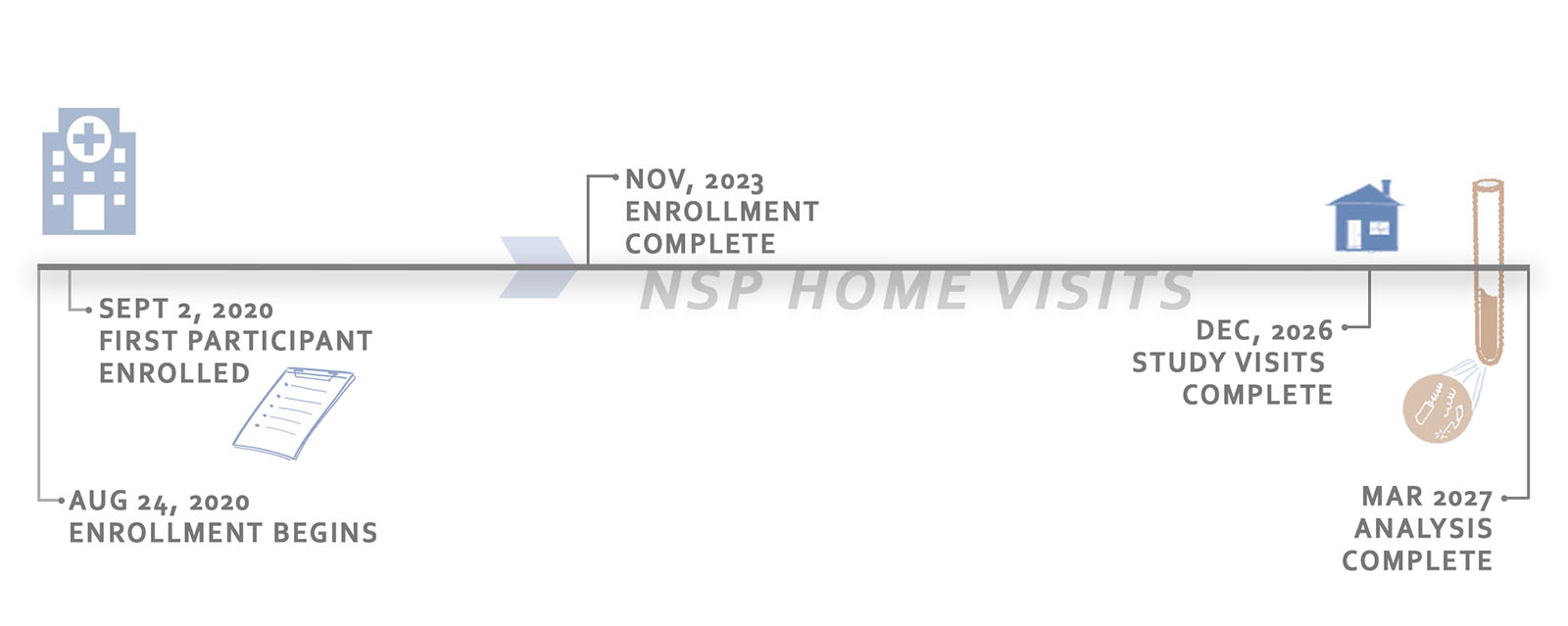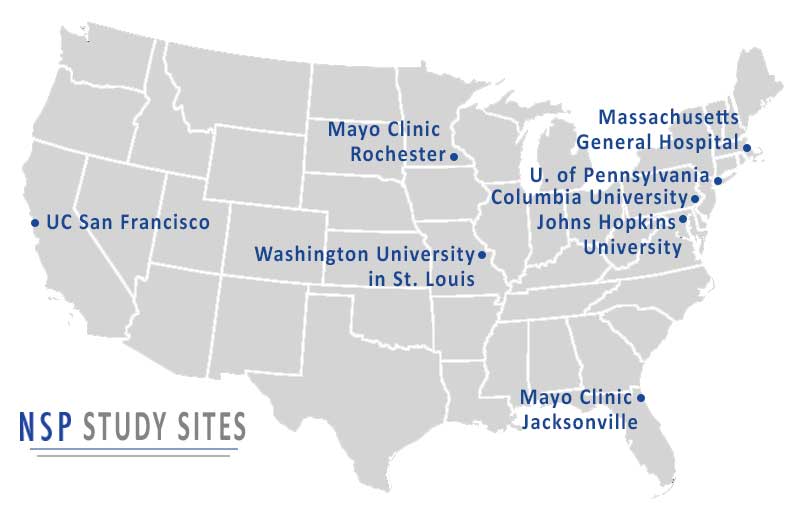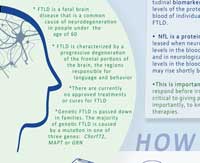NSP Study Details
What is the NSP?
The Neurofilament Surveillance Project (NSP) is a longitudinal biomarker study. The study's goal is to evaluate levels of the protein neurofilament light chain (NfL) in the blood of individuals who are members of a family with genetic FTLD caused by a mutation in one of three genes: C9orf72, MAPT or GRN. No drugs or interventions are administered; this is an observational study only.

How long is the study?
The study began in 2020 and is anticipated to end in December 2026. Once enrolled, a given individual will participate in the study for 36 months (3 years).

Why research Neurofilament Light Chain?
NfL is a protein primarily found in brain axons that is released when neurons are damaged or die. For example, NfL levels in the blood are elevated after traumatic brain injury. Prior work suggested that NfL levels in the blood of people with FTLD-causing mutations may rise shortly before symptom onset.
What happens in this study?
Traveling nurses will visit participants’ homes (or place of choosing) every 3 months for 3 years to take a blood samples. Researchers will then analyze blood samples to measure levels of NfL.

Why is this study valuable?
- This study will help researchers understand genetic FTLD onset and progression.
- Identifying the onset of symptoms in individuals carrying inherited FTLD mutations and responding before irreversible brain degeneration takes place will be critical to identifying when to provide potentially life-saving therapies.
- Better understanding the progression of FTLD will help guide clinical trials in genetic FTLD.
Participant Resources
Participating Sites

The NSP study is an ancillary study to the ALLFTD natural history study (allftd.org).
Participating sites include:
Columbia University
Johns Hopkins University
Massachusetts General Hospital
Mayo Clinic
University of California San Francisco
University of Pennsylvania
Washington University in St. Louis



